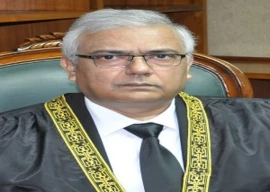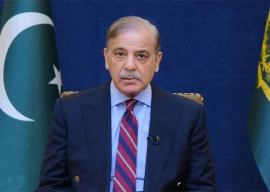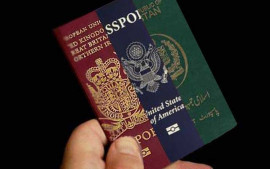
Dismissal of an accountability court judge has called into question the Supreme Court’s role in 2017 Panamagate saga in which the top court both supervised probe into former premier Nawaz Sharif and his family’s foreign assets as well as the cases that were registered on basis of this probe.
Islamabad Accountability Court-II Judge Arshad Malik in December 2018 convicted Nawaz Sharif in the Al-Azizia Steel Mill reference – one of the four references filed on order of the Supreme Court. However, an administrative committee of the Lahore High Court (LHC) on Friday sacked him for misconduct.
The seven-member committee dismissed the accountability court judge from service on the basis of an investigation into a video released by PML-N leader Maryam Nawaz showing the judge ‘confessing’ to convicting Nawaz under duress. The inquiry report declared Malik guilty.
A five-judge apex court bench in 2017 took up oppositions’ petition filed after Panama Leaks which revealed that family of then prime minister Nawaz Sharif had assets in London.
On April 20, 2017, a majority judgment called for forming a powerful Joint Investigation Team (JIT) to probe into sources of the fund used by the Sharifs to purchase the assets.
Interestingly, the SC selected names of six JIT members including two senior officials of the Inter-Services Intelligence (ISI) and the Military Intelligence (MI). A three-judge special bench was formed to monitor the JIT investigation.
The team was asked to submit fortnightly reports about its probe to the bench. On July 10, 2017, the JIT submitted the final report with new revelations related to business affairs of the Sharif family.
The issue related to employment of Sharif in his son’s UAE-based company Capital FZE surfaced for the first time in the JIT’s final report.
However, senior lawyers believe that without the assistance of some powerful stakeholders, it was not possible for the JIT to bring the documents related to Capital FZE from the UAE.
In view of the same documents, former prime minister was disqualified for lifetime on July 28, 2017. The court also ordered the National Accountability Bureau (NAB) to file four references against the Sharifs.
The court also ruled that an SC judge will also monitor proceedings of the accountability courts, once NAB filed references in them. Justice Ijazul Ahsan was the monitoring judge, who supervised the trial of the PML-N leaders. However, there is no detail as what were the parameters for supervising the trial.
The accountability courts shared the progress report of the trial with the monitoring judge every month. The Sharif’s legal team consistently expressed reservations over supervision of the trials by the SC.
Even Khawaja Haris, the counsel for Sharif, contended in his arguments in the review petition before the five-judge larger bench against the July 20, 2017 verdict that supervision of the accountability courts’ proceedings would affect fair trial.
The counsel alleged that the SC itself had become the complainant, the prosecutor and the judge in the matter. In its July 28 verdict, the SC had asked the accountability court to decide the four references within six months.
However, the accountability court got eight extensions to complete the trial. Legal experts wondered why an accountability court announced verdict in one reference [Avenfield case] before the general elections of July 2018. They questioned the manner in which the former chief justice of Pakistan Saqib Nisar managed to have Avenfield case decided before the polls.
Islamabad Accountability Court-I judge passed an order on November 8, 2017, wherein he did not allow Nawaz Sharif application for clubbing all the three references for a joint trial.
However, he categorically noted that “in order to avoid conflicting judgments, or any likelihood of ignoring any defense that would be produced by the applicant/accused separately in each reference, all the three references shall be decided simultaneously”.
When on June 10, 2018, a written request was forwarded by the Islamabad Accountability Court-I to the Supreme Court for extension of time for the conclusion of trials, the apex court permitted extension by way of an unrealistic time of four weeks from the date of the said order.
The bench in its order also used the expression “reference/references”, thereby indicating that if all three references could not be decided together, the accountability court could decide at least one reference within the extended time of 4 weeks.
Interestingly, the extended period of four weeks ended on July 10, 2018 – two weeks before the general election. One section of lawyers believes that the phrase “reference/references” was subsequently used as an excuse by the accountability court to give decision in one reference before polls.
In view of the judgment, Nawaz Sharif, his daughter Maryam Nawaz and his son-in-law Captain (retd) Safdar were convicted and put behind bar before the election. There is strong chance that Sharif family will build up case of bias against then CJP Nisar to quash all Panamagate proceedings.









1724916231-0/Untitled-design-(3)1724916231-0-270x192.webp)













COMMENTS
Comments are moderated and generally will be posted if they are on-topic and not abusive.
For more information, please see our Comments FAQ